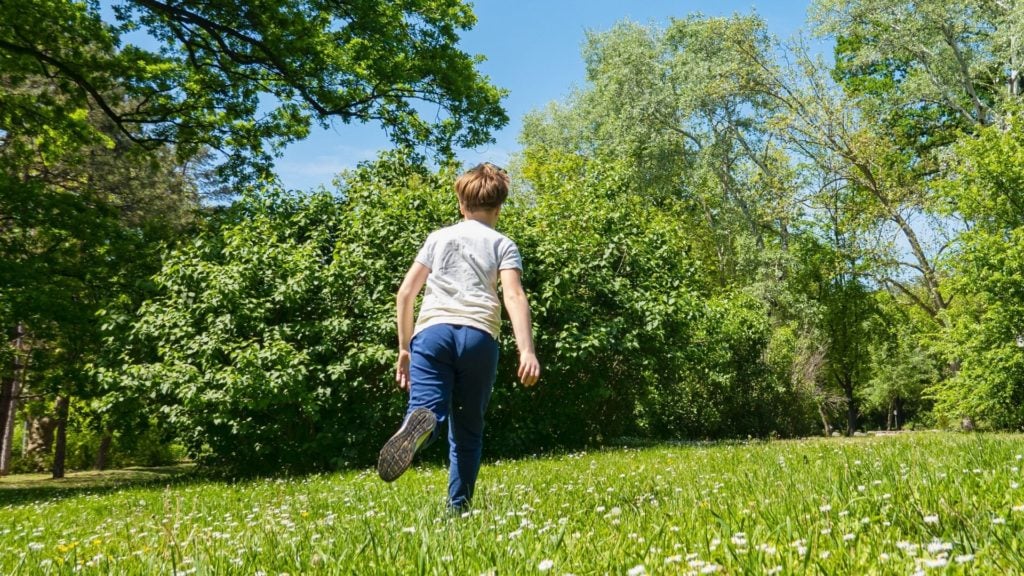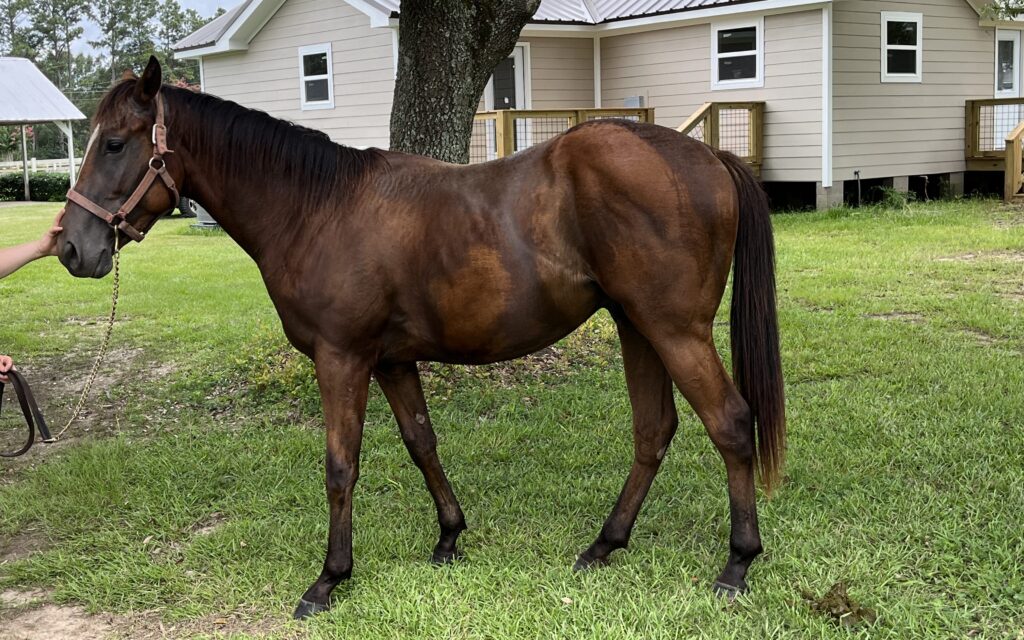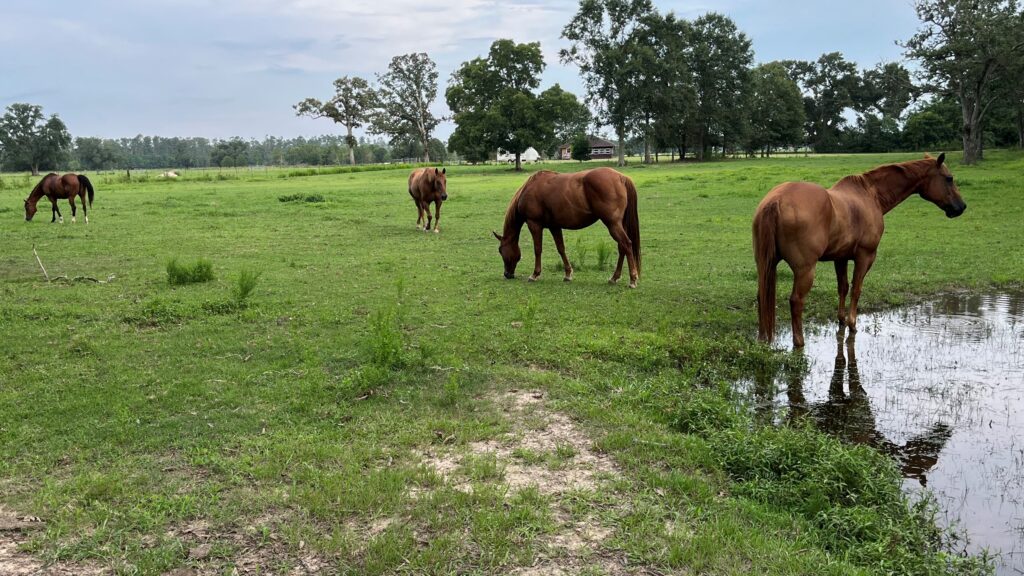Last updated: January 9, 2025
As a lifelong horseman with over 25 years of experience, I’ve dealt with my fair share of horseflies. These persistent insects are more than just a nuisance; their aggressive behavior and painful bites make them a challenge for humans and animals alike. Understanding why horseflies behave this way is crucial to protecting yourself and your animals while navigating their habitats.

Why Do Horseflies Bite?
Female horseflies bite because they require blood to develop their eggs. Unlike males, which feed on nectar and pollen and contribute to pollination, females use their sharp, scissor-like mouthparts to tear the skin of their hosts. This biological drive makes them highly aggressive in their quest for a blood meal. According to Purdue University Extension, this blood-feeding behavior is essential for female reproduction and is why they relentlessly pursue humans and animals.
What Attracts Horseflies?
One summer, my neighbor’s son seemed to attract every horsefly in sight, while his father, who was often with him, barely got bitten. This made me wonder, what attracts horseflies? Horseflies are attracted to specific stimuli, which explains their persistence and chasing behavior:
- Movement: Rapid motion catches their attention, making active animals and people prime targets.
- Dark Colors: Horseflies are particularly attracted to darker or contrasting colors, likely because they resemble their typical prey.
- Carbon Dioxide: Like mosquitoes, horseflies are drawn to the CO₂ exhaled by animals and humans.
According to the University of Kentucky’s Entomology Department, these factors make horseflies highly effective at identifying hosts, which is why they often swarm around livestock, horses, and humans.

Why Do Horseflies Chase Humans and Animals?
Horseflies are relentless chasers. While their typical flight speed is around 15 mph, some species, such as the male horsefly (Hybomitra hinei wrighti), have been recorded reaching astonishing speeds of up to 90 mph during mating pursuits. This high speed, however, is specific to mating behavior and not typical flight behavior for females. According to entomologist Dr. Art Evans, female horseflies rely on persistence rather than extreme speed to pursue their hosts (Source: VPM).
The persistence of horseflies is primarily driven by the biological need of female horseflies to obtain blood meals, which are essential for egg development. Female horseflies rely on their acute ability to detect movement, heat, and carbon dioxide. Their high-speed flight enables them to follow potential hosts over considerable distances, often up to 200 yards.
While it may seem as if they are chasing you with intent, they are simply responding to these biological cues as they search for a meal. Their blade-like mandibles allow them to cut through the skin and capillaries, after which they use a sponge-like labella to consume the blood that pools in the wound.
Fortunately, horseflies will typically stop chasing if their target escapes their sensory range or moves into a less favorable environment, such as cooler, shaded areas, or areas with strong winds. Understanding their persistence and the triggers that attract them can help you take measures to avoid their painful bites.
What methods have worked for you in avoiding horsefly bites? Share your tips in the comments below!
Understanding the Lifecycle and Behavior of Horseflies
Horseflies belong to the family Tabanidae, which includes an estimated 4,300 species worldwide, with approximately 335 species found in the continental U.S. They undergo complete metamorphosis, progressing through egg, larval, pupal, and adult stages.
- Larval Stage:
Thriving in moist environments like marshes and ponds, horsefly larvae are predatory, feeding on aquatic organisms and decaying material. This stage lasts several months and plays a vital role in nutrient cycling. - Adult Stage:
Adult horseflies emerge during warmer months and are most active in sunny, open habitats. Males feed on nectar and pollen, aiding pollination—particularly in wetland plants such as swamp milkweed and pickerelweed—while females require blood meals to support egg development. Their biological adaptations, including blade-like mandibles and sponge-like labella, enable them to obtain the nutrients needed for reproduction.
This lifecycle showcases their ecological importance as both predators and pollinators, influencing aquatic and terrestrial ecosystems. For more details on horsefly biology and lifecycle, check out NC State Extension’s article on horseflies.

Are Horseflies a Public Health Risk?
While primarily a nuisance, horseflies can pose certain health risks to animals and humans, particularly through their bites and potential role in disease transmission.
Disease Transmission:
Although relatively rare, horseflies can transmit certain diseases with significant impacts:
- Anthrax:
Horseflies act as mechanical vectors for Bacillus anthracis, the bacterium that causes anthrax. Transmission occurs when a fly feeds on the blood of an infected animal and then bites another host, introducing bacteria into the wound. This disease primarily affects livestock, with outbreaks leading to economic losses in agriculture. Human cases are rare but can be severe without treatment. (Source: CDC) - Tularemia:
Known as “rabbit fever” or “deer fly fever,” tularemia is caused by the bacterium Francisella tularensis. Horseflies can transmit this disease through bites, although ticks and direct contact with infected animals are more common transmission routes. Symptoms include fever, swollen lymph nodes, and ulcers. Tularemia is treatable with antibiotics when detected early. - Loa loa Filariasis:
In certain regions of Africa, horseflies transmit Loa loa, a parasitic worm that causes loiasis, or African eye worm. The larvae enter the skin through bites and mature into adult worms that migrate through the body, causing visible movement under the skin or in the eyes. Though not life-threatening, the condition requires medical intervention to remove the worms.
Impact of Disease Transmission:
While horseflies are not major disease vectors globally, their ability to spread pathogens like anthrax or tularemia underscores the importance of monitoring bites, using repellents, and vaccinating livestock in high-risk areas.
Allergic Reactions:
Some individuals experience severe allergic reactions to horsefly bites, including:
- Swelling: Significant swelling around the bite site.
- Itching: Intense itching at and around the bite.
- Systemic Reactions: Rare cases of severe reactions requiring medical attention.
Additional Considerations:
- Painful Bites: Horseflies’ scissor-like mouthparts cause immediate pain, swelling, and redness.
- Persistent Feeding: Female horseflies often return to bite multiple times if disturbed.
- Biting Through Clothing: Horseflies can pierce thin clothing, fur, or hides to feed.
- Risk of Infection: Secondary infections can occur if bites are not properly cleaned and treated.
While horseflies do not pose a widespread public health risk, their bites can be painful and occasionally dangerous. Taking preventive measures, such as wearing protective clothing, using repellents, and treating bites promptly, can minimize risks and discomfort.

The Ecosystem Role of Horseflies
While often seen as pests, horseflies play a vital role in the ecosystem. It’s important to recognize their contribution to biodiversity and ecosystem health, acknowledging that they are more than just a nuisance due to their biting behavior.
Pollination:
Male horseflies are crucial pollinators, feeding on nectar and pollen, while females require blood for egg development. They are particularly important pollinators for wildflowers in wetland habitats, such as pickerelweed (Pontederia cordata) and swamp milkweed (Asclepias incarnata). While not as prominent as bees, horseflies’ contributions are significant, with unique adaptations like flower-specific attraction aiding in plant reproduction. By pollinating a range of plants, horseflies indirectly support agricultural ecosystems by promoting biodiversity.
Food Source:
Horseflies form an integral part of the food web, serving as prey for birds (e.g., swallows), bats, frogs, and predatory insects like dragonflies and spiders. Additionally, horsefly larvae are a food source for fish and other aquatic creatures, linking terrestrial and aquatic ecosystems. These predators help regulate horsefly populations, maintaining ecological balance.
Impact on the Food Chain:
Horseflies affect the population dynamics of other species by preying on smaller insects and feeding on organic matter in water. Their presence influences biodiversity and helps maintain balance within their habitats. A decline in their populations could indicate environmental changes, such as deteriorating water quality or habitat loss.
Balancing Nuisance and Necessity:
The presence or absence of horseflies can serve as an indicator of ecological health. For example, declines in their populations may signal water quality issues in wetland environments. Although often viewed as pests due to their painful bites, horseflies play a dual role as pollinators and a food source. Their contributions to biodiversity remind us that even the smallest creatures have a vital role in the web of life.

How to Prevent Horsefly Bites: Strategies and Solutions
Protecting yourself and your animals from horsefly bites requires a combination of strategies, rather than relying on any single method1. Effective prevention involves personal measures, environmental modifications, and the use of protective gear.
Personal Protection:
- Wear Protective Clothing: Covering exposed skin is a primary defense2. This includes wearing long-sleeved shirts, long pants, and hats.
- Light-colored clothing is recommended, as horseflies are more attracted to dark colors. Dark or contrasting colors can make a person or animal more appealing to horseflies.
- While clothing can offer some protection, horseflies are capable of biting through clothing, fur, and animal hides.
- Repellent clothing treated with insecticides can also deter horseflies.
- Use Effective Repellents: Applying insect repellents is crucial.
- DEET-based repellents are effective.
- Natural alternatives such as citronella and eucalyptus oil can also be used.
- Other scents that horseflies seem to avoid include rosemary, basil, lemongrass, and clove, as well as Avon’s Skin-So-Soft, apple cider vinegar, and white vinegar. Explore more homemade horsefly sprays.
Environmental Modifications:
- Eliminate Standing Water: Horsefly larvae develop in moist environments, making it crucial to remove any standing water and wet areas.
- Keep Pastures Well-Drained: Maintaining well-drained pastures reduces breeding grounds.
- Clear Excessive Moisture: Reducing overall moisture in areas where horseflies are common can help control their populations.
- Keep grass and vegetation trimmed to reduce breeding sites.
Protective Gear for Horses:
- Fly Masks: These are particularly important for protecting the sensitive areas around the face and ears.
- Fly Sheets: These cover a larger portion of the horse’s body, providing additional protection.
- Leg Wraps: These help to protect the legs from bites.
- Commercial sprays, masks, fans, and fly boots are other products that can help protect horses from horseflies.
Explore more about protective gear for horses in my article, Do Horse Fly Masks and Fly Boots Work?
Traps and Barriers:
- Install Horsefly Traps: Place traps in areas where horseflies are frequently observed.
- Box traps with shiny black sides can be used to reduce horse fly populations in small areas.
- Traps can be enhanced with a black ball suspended underneath.
- Blue-colored cups or buckets covered with glue can be effective against deer flies.
- Use Physical Barriers: Screens or netting can keep horseflies away from both animals and humans.
Additional strategies:○
- Avoid Peak Activity Times and Locations: Horseflies are most active during hot, humid days and near water bodies, so limiting exposure during those times and in those areas may help.○
- Keep barns clean of manure and debris.
- Consider professional pest control services for consistent and comprehensive help.○
- Use fans in your horse barn to deter horseflies.
Considerations:
- Repellents provide limited protection. Horse and deer flies are not easily deterred by repellents, including those containing DEET.
- Insecticides are not a practical solution. Applying insecticides to kill larvae is not an option because most species develop in natural habitats. Insecticides are ineffective against adult horse and deer flies because they are relatively large.
- Wearing thick clothing like long sleeve shirts, thick pants, and heavy hats may provide some protection against bites.
Effectively preventing horsefly bites requires a combination of strategies that include wearing protective clothing, using repellents, modifying the environment to eliminate breeding sites, providing protective gear for horses, and utilizing traps or barriers. The complete elimination of horseflies is difficult, and protection requires diligence and a multi-pronged approach.

FAQs
Do homemade horsefly sprays work?
Yes, and some homemade horse fly sprays are as effective as commercial sprays. Plus, most are safer and cheaper to make than retail fly sprays.
You can learn more about homemade horsefly sprays in this article.
Why do horseflies bite?
Female horseflies bite because they need blood to develop their eggs. Male horseflies, on the other hand, feed on nectar and do not bite. The biting is a biological imperative for reproduction, not random aggression
What attracts horseflies?
Horseflies are primarily attracted to movement, dark colors, and carbon dioxide. They are also attracted to moisture and lactic acid in sweat. These factors make humans and animals active in warm, humid conditions common targets. Explore more in this article: Why Do Horses Attract Flies? Number 2 May Surprise You
Are horsefly bites dangerous?
Horsefly bites can be painful due to their scissor-like mouthparts. Although rare, they can potentially transmit diseases like anthrax and tularemia. Some individuals may also experience allergic reactions to the bites. It’s also important to note that horseflies can transmit equine infectious anemia to horses.
How can I avoid horsefly bites?
To minimize your risk of being bitten, consider the following proactive measures:
Wear light-colored, long-sleeved shirts and pants.
Apply insect repellents containing DEET, picaridin, or lemon eucalyptus to exposed skin.
Avoid marshlands, beaches, and open areas near woodlands on windless days.
Use protective gear for horses.
Consider setting up traps or barriers.
Can horseflies bite through clothing?
Yes, horseflies can bite through thin clothing, so it’s best to wear thicker, protective clothing to reduce the risk of bites. While clothing can help, it’s not a guarantee of protection.
Learn more about horsefly aggression and behavior in this informative video.
Conclusion
Horseflies are aggressive due to their biological need for blood and their strong attraction to movement, dark colors, and carbon dioxide. While their bites can be painful and pose some health risks, understanding their behavior and taking proactive measures can help you avoid their attacks. Share your own experiences or tips for dealing with horseflies in the comments below\u2014your story could help others stay bite-free!

About the Author: Miles Henry
Lifelong Horseman | Racehorse Owner | Published Author
Miles Henry brings over 25 years of hands-on experience training and owning Thoroughbred racehorses. Raised with Quarter Horses and Appaloosas, he’s spent a lifetime learning from horses—on the track, in the barn, and in the field. Today, he runs a small but successful racing stable in Louisiana and shares real-world insights on HorseRacingSense.com, helping horse owners, fans, and bettors navigate the sport with confidence.
📚 Books: View Miles’s books on Amazon »
🎧 Podcast Guest: Animal Tales Ep. 32 |
YouTube Interview
📩 Newsletter: Sign up for racing tips and horse care advice »
🔗 Follow Miles:
Twitter |
Facebook |
YouTube


